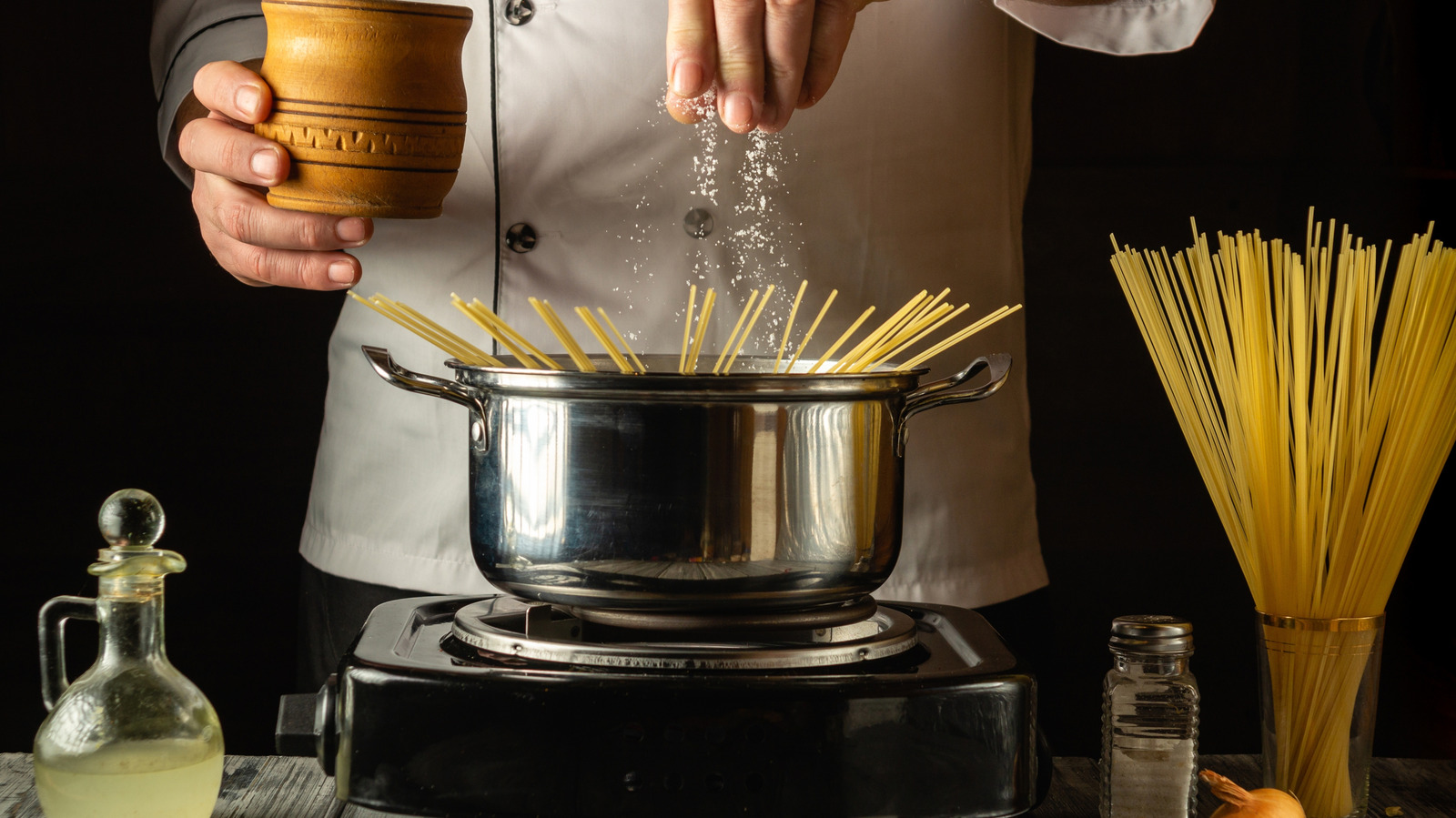
"Sprinkling in the mineral right after filling a pot with water seems like the next natural step, but it can lead to pasta that's way too salty. When you add salt to cold water, part of that liquid will bubble up and evaporate as it boils. The salt, however, won't dissipate, leaving you with liquid that makes the noodles taste overly briny."
"Additionally, salting too early means having to wait even longer before adding in the noodles. This is because salt slows water from boiling by increasing its boiling point. The mineral's ions attach to water molecules and attempt to hold them in place, meaning that a gentle simmer will take longer to explode into a rolling boil. To prevent this, always wait until the water is already boiling vigorously before sprinkling in some salt."
"Still, your pasta water probably needs more salt than you realized. The noodles are the foundation to a delicious pasta dish, and they should be good enough to stand on their own, without any add-ons. You want each bite of the dish to be as delicious as the last, even if you don't have enough sauce to coat each inch of the noodles."
Add enough water to fully submerge pasta and wait for a vigorous rolling boil before salting. Sprinkling salt into cold water can concentrate salt as water evaporates during boiling, producing overly briny liquid. Adding salt too early also delays boiling because dissolved salt raises the water's boiling point and its ions bind water molecules, slowing the transition from simmer to rolling boil. Salt the water once it is already boiling to avoid extended wait times and excess salinity. The type and exact amount of salt are personal choices, but pasta water typically requires more salt than expected so noodles remain flavorful even with less sauce.
Read at Tasting Table
Unable to calculate read time
Collection
[
|
...
]